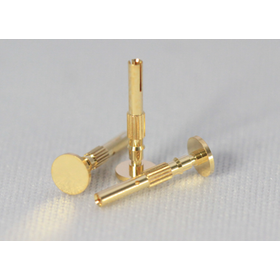Environmental Survey Mold Index
Indoor mold sensor. Compact mold sensor. Exposed mold sensor.
The mold index is a quantitative representation of the environment for mold growth and is an index for predicting mold contamination.
If the indoor environment is conducive to mold growth, residents only notice the mold contamination when it becomes visible. By the time they notice, mold spores have already spread throughout the indoor space from the contaminated areas. If it were possible to know in advance whether the environment is suitable for mold growth, it should be possible to take action before suffering damage from mold. Therefore, we developed a method that uses living mold itself as an environmental sensor, quantitatively displaying the environment based on its growth rate, and named it the "fungal index." The author continues to conduct environmental surveys using the fungal index.
Inquire About This Product
basic information
"Overview of Mold Index Measurement Method" (1) Install the mold sensor in the environment for exposure (set period in the investigation environment). (2) Recovery. (3) Take microscopic photographs of the sensor fungi inside the mold sensor. (4) Measure the length of the fungal hyphae. (5) Convert the hyphal length to response units. (6) Response units ÷ number of exposure weeks = Mold Index ● For more details, please contact the Environmental Biology Research Institute. http://kabiken/com/
Price information
******
Price range
P2
Applications/Examples of results
For more details, please contact us.
Detailed information
-

Schematic of an indoor mold sensor Spots of mold spores and nutrients (diameter in millimeters) inoculated on a plastic plate are surrounded by a double-sided tape frame and covered with a film that allows moisture and air to pass through from above. The measurement range for hyphal length is from germination until it reaches the surrounding double-sided tape. During indoor investigations, the test specimen in the diagram is further placed in a bag with one side made of non-woven fabric, sized to a business card.
-

Examples of growth in the mold sensor: A: No germination is observed. B: Mold spores have germinated and mycelium is elongating. C: Mycelium is significantly elongating and has exceeded the measurement limit.
Company information
The Environmental Biology Research Institute is a company that deals with mold growth environments located in Nakatsu, Aikawa Town, Aikō District, Kanagawa Prefecture. For more details, please visit the Environmental Biology Research Institute's website at http://kabiken.com/.

![shisuuyou[1].jpg](https://image.mono.ipros.com/public/product/image/a32/2000004946/IPROS7093888654470096427.jpg?w=280&h=280)


![[Test] Sulfur content: Radiation excitation method (JIS K2541-4)](https://image.mono.ipros.com/public/product/image/bc8/2001118815/IPROS10857294953555008977.png?w=280&h=280)



![[Processing Example] Achieving high-precision processing and quality stabilization of catheter tips.](https://image.mono.ipros.com/public/product/image/144896/IPROS16433267616338975086.png?w=280&h=280)
